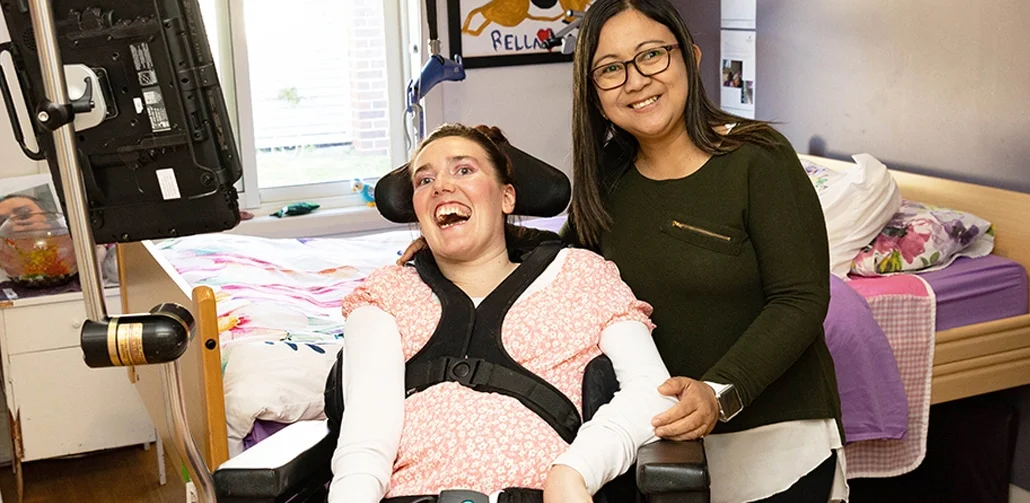There’s a quiet kind of meaning tucked into the word home. It’s not just bricks and a front door—it’s where we feel most ourselves. Safe. Known. Now imagine trying to build that kind of comfort while also needing support every day. Not easy, right?
That’s where SIL in Melbourne comes into the picture—not as some rigid care model, but as a softer, more human way to live independently, with just the right kind of help close by.
Supported Independent Living isn’t really about ticking off services. It’s about creating a life that works. One that’s built around how you move through the world—your routines, your comfort zones, your small wins. And in a city like Melbourne, where no two lives look the same, the best SIL homes reflect that. They honour the individual behind the plan.
Not Just Care—Real Living
For many, SIL in Melbourne is the difference between surviving and living. The difference between feeling like a “case” and feeling like a person who simply needs a bit of extra support to move through their day.
Some participants might need 24-hour assistance, others only a few touchpoints. Support could mean help with medication, navigating a meal plan, keeping the house in order, or just a steady presence to lean on when things feel overwhelming. The important part? The support wraps around the person. Not the other way around.
In shared SIL homes, residents often find more than assistance—they find community. Small rituals emerge. Morning routines fall into sync. One housemate loves to cook, another waters the plants. Independence, here, doesn’t mean solitude. It means space to grow without the pressure to do it all alone.
The Local Fabric of Care
Melbourne is not one-size-fits-all, and neither is its care landscape. From leafy Greensborough to bustling Footscray, SIL in Melbourne weaves itself into communities of every shape and pace.
That variety matters. Some participants thrive in homes that buzz with energy. Others need peace and predictability. Whether it’s a modern townhouse near public transport or a quiet home tucked into a cul-de-sac, the best SIL providers know the setting is just as important as the service.
And good providers? They listen not just about support needs, but about hobbies, preferences, and cultural values. They ask what makes someone laugh, what kind of music fills their playlists. They build care around identity, not diagnosis.
The Human Behind the Role
Support workers are often the unsung heroes of SIL in Melbourne. They are calm hands in chaos. Observant listeners are silent. It’s not just about helping with day-to-day tasks—it’s about presence. Trust.
In great SIL setups, workers don’t feel like rotating staff. They feel familiar. Predictable in the best way. The kind of people who remember how you like your tea or know when you need a moment of quiet without being told.
And when the match is right between the participant, home, and team—that’s when progress happens. Real progress. The kind that shows up in small wins: a new recipe tried, a solo walk taken, a fear overcome.
Matching People, Not Just Needs
The magic of SIL in Melbourne doesn’t lie in polished brochures or long checklists—it lies in matching people thoughtfully. Housemates, after all, are more than just co-residents. They’re potential companions in the rhythm of daily life.
So, providers take their time. Trial stays. Conversations. Sometimes it clicks immediately. Other times, it takes reshuffling and reevaluating. But when it works, something shifts. A home becomes more than functional—it becomes meaningful.
Planning for Progress, Not Perfection
Families often worry: Will my loved one cope? Will they be safe? Will they thrive?
And while no home—SIL or otherwise—is perfect, the right setting encourages steady growth. Over time, small dependencies lessen. Confidence builds. Skills develop in ways that surprise even the participants themselves.
That’s the quiet power of SIL in Melbourne. It plants seeds of independence and patiently waits for them to grow.
Diversity Matters
Melbourne’s cultural patchwork is one of its strengths, and SIL providers here are increasingly reflecting that richness.
For participants from culturally and linguistically diverse backgrounds, this isn’t just a nice-to-have. It’s essential. Feeling understood, in your own language or cultural nuance, builds trust. It invites honesty. And it makes care feel less like a service and more like support from someone who gets you.
The best providers lean into this. They don’t just translate forms—they translate experience.
Beyond the Paperwork
Of course, there’s the admin side of it all. Funding approvals. Support plans. Matching NDIA criteria. It can be… a lot.
But strong providers walk families through it, step by step. They explain what SIL looks like practically. What funding covers? What expectations should be set? And what questions should you ask that you may not have thought of yet?
Because SIL in Melbourne should never feel like navigating a system alone, it should feel like building a home, with help.
Final Thought: This Is Independence, Reimagined
Supported Independent Living doesn’t hand someone independence—it gives them the tools to build it, piece by piece, at their own pace.
And SIL in Melbourne with DMA Caring Hands, when it’s done with care, becomes more than a support model. It becomes a quiet revolution in how we see autonomy, dignity, and everyday joy.
Because absolute independence isn’t loud or dramatic, it’s the ability to wake up in your room, in a place that feels yours, with support that feels like just enough.
And that—simple as it sounds—is everything.

